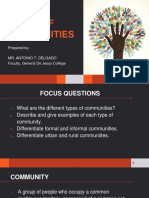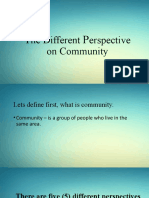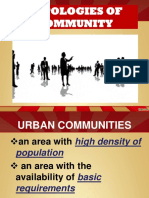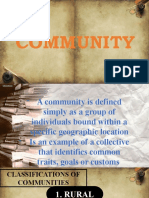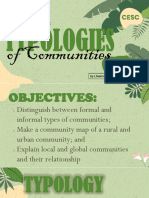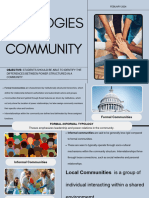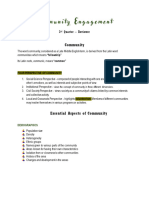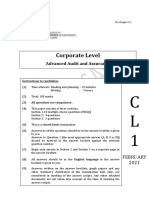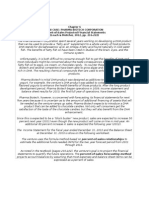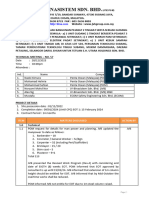0% found this document useful (0 votes)
5 views10 pagesTypologies of Community Lesson 5
The document outlines various typologies of communities, categorizing them into formal, informal, urban, rural, global, sectoral, and social space types. Each type is defined by its characteristics, such as structure, purpose, and social dynamics. It also poses questions regarding the classification of communities and the influence of modern technologies on their formation.
Uploaded by
bilogangelo4Copyright
© © All Rights Reserved
We take content rights seriously. If you suspect this is your content, claim it here.
Available Formats
Download as PPTX, PDF, TXT or read online on Scribd
0% found this document useful (0 votes)
5 views10 pagesTypologies of Community Lesson 5
The document outlines various typologies of communities, categorizing them into formal, informal, urban, rural, global, sectoral, and social space types. Each type is defined by its characteristics, such as structure, purpose, and social dynamics. It also poses questions regarding the classification of communities and the influence of modern technologies on their formation.
Uploaded by
bilogangelo4Copyright
© © All Rights Reserved
We take content rights seriously. If you suspect this is your content, claim it here.
Available Formats
Download as PPTX, PDF, TXT or read online on Scribd
/ 10



